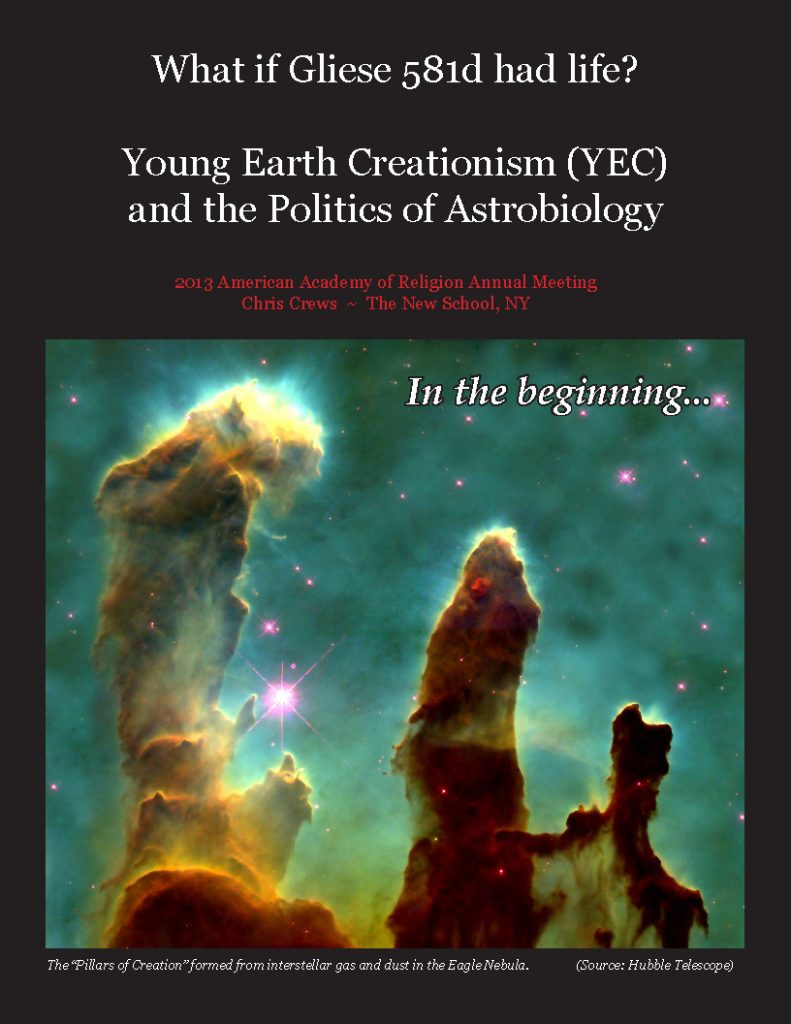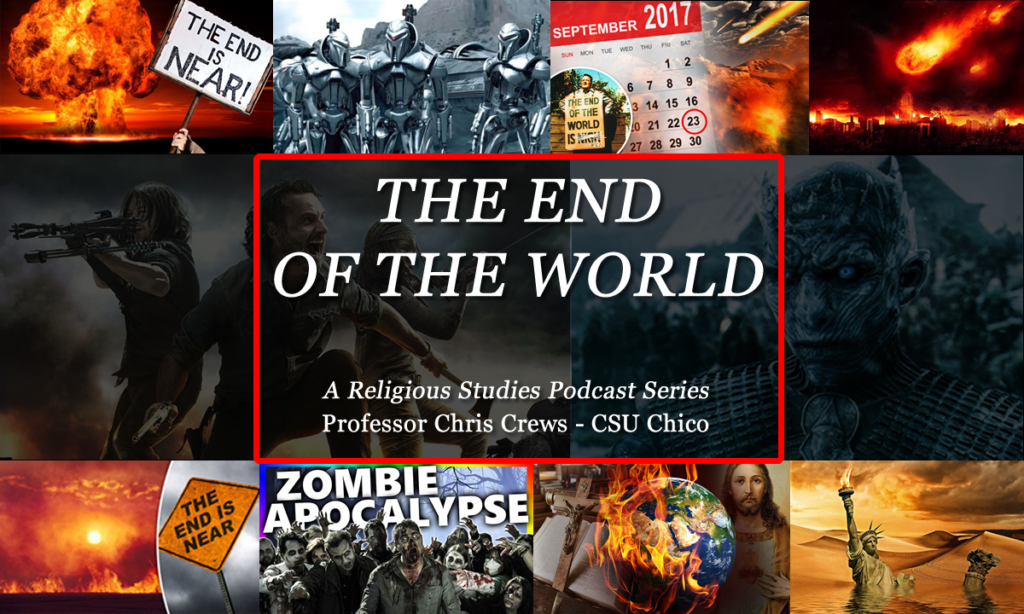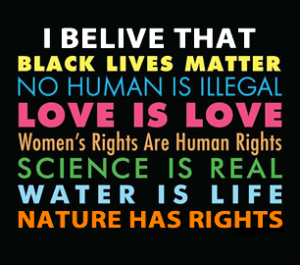Young Earth Creationism and the Politics of Astrobiology
So I had the great pleasure recently to present some of my latest research on creationism, science education and politics, in this case on the topic of astrobiology and young earth creationism. I was part of a fascinating panel at the Annual Meeting of the American Academy of Religion (AAR) in Baltimore titled “Cosmic Quest, Cosmic Contact: Astrobiology, Astrotheology, Astroethics.” You can watch my narrated slideshow presentation here, or listen to just the audio below. It’s just under 20 minutes, and goes over the main findings of my research, with emphasis on public opinion and polling data around support for creationism, as well as a look at the emerging field of creation astronomy and some of the creationist discourses about extraterrestrial life in outerspace.
[soundcloud url=”https://api.soundcloud.com/tracks/122648814″ width=”100%” height=”166″ iframe=”true” /]
 If you are interested in the research this talk is based on, you can read the full 60 page conference paper on my Academic.edu page.
If you are interested in the research this talk is based on, you can read the full 60 page conference paper on my Academic.edu page.
This project has been an interesting exercise in stepping outside the usual borders, since in this panel I was presenting with mostly theologians and scientists on an area not much looked at in political theory or political science as a discipline. And because my work tends towards academic discipline erasure, this unusual mix of fellow presenters and backgrounds was also exciting. After all, it’s not every day that political theorists are working alongside theologians and space scientists talking about life in space, cosmic ethics and issues of extraterrestrial salvation and redemption!
I see this work as part of a turn my overall project is taking towards the theological, which interestingly enough, seems to also be a trend within some fields of political theory, especially those I am already interested in, like radical democracy and science and technology studies. It also fits nicely with the ongoing work I have been doing for the past year or two around religion and science in popular culture, and in particular the relationship between religious worldviews and environmental issues, especially climate change.
In that regard, I had the opportunity to sit in on several of the workshops of the Religion and Ecology Group, which is one of the thematic tracks within the overall AAR. Those were also quite fascinating, and since I am just starting to get acquainted with this subfield it was double fascinating. And I ran into some old and new friends in the process, which is always a nice surprise. So where this line of inquiry will lead is to early to say, but it is all very exciting. While I doubt I will be spending a lot of time on astrobiology specifically, the time looking into these issues has not only opened my eyes to other interesting questions relevant to my own work, it has also given me a renewed appreciation for stars and outer space. Living in NYC for almost 5 years now, I had almost begun to forget that there is an entire universe just above our heads. It’s good to be reminded of that once in a while.
Until next time…to infinity and beyond.
###


